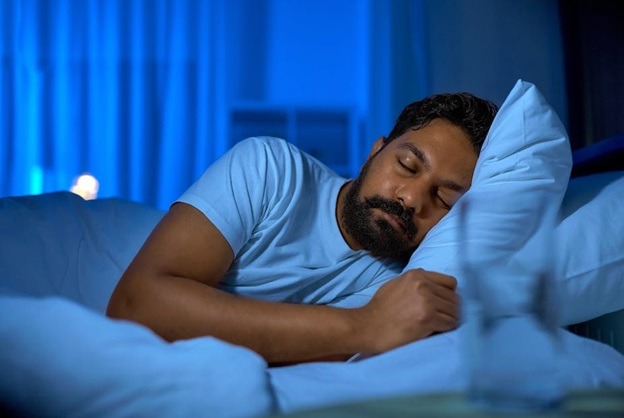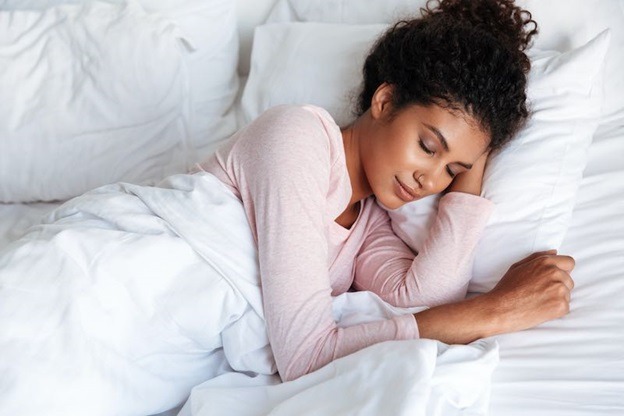We all know how important sleep is to keep ourselves healthy and well-rested, but did you know that some more surprising facts about sleep might surprise you? While much of the information surrounding sleep may sound basic and shared knowledge, understanding these strange characteristics can help us achieve better sleeping habits if we use them correctly. This blog post will uncover seven of the most exciting things you probably didn’t know about your everyday slumber to give you a deeper insight into one of life’s essential activities.
We’ll discuss what environment will promote good quality rest and explain why adequate shut-eye contributes to overall wellness. Following from now on, tips included in this article will make getting the right amount of sleep easier and leave you with an unexpected appreciation for the power and intriguing aspects of restful nights. That being said, let’s get started!
1. The average person spends about one-third of their life asleep
Sleep can benefit our physical and mental health in ways many may not know. Studies have found that getting enough quality sleep has been strongly linked to maintaining a healthy weight, boosting our alertness and productivity during the day, improving our overall moods, and even helping to lower the risk for some chronic illnesses. In addition, sleep also affects how we learn new information, think more clearly, regulate stress levels, and make decisions. However, many of us aren’t getting enough quality sleep each night – the average person spends around one-third of their lives asleep – so it’s essential to prioritize good sleeping habits regularly to reap all its rewards.
2. You can sleep too much
It may surprise you that it’s possible to get too much of a good thing – like sleep. That’s right, not getting enough sleep can be detrimental to our health, but so can oversleeping! Oversleeping has been linked to several health problems, including obesity and diabetes. Scientists aren’t sure why this happens but believe that the hormone leptin might be involved, as excess sleeping leads to an increase in this hormone which causes us to eat more, contributing to weight gain and impaired glucose metabolism. So don’t think hitting the snooze button one too often is harmless; take care to stay within the recommended amount of sleep each night. One should also keep in mind that their mattress should be comfortable enough to have a good night’s sleep. If you are looking for the best mattress in the market then consider Aireloom’s 2023 mattress ranks.
3. Not getting enough sleep has been linked to health problems
Sleep problems can be more severe than you realize! It’s not just about feeling cranky the next day – not getting enough sleep has been linked to health issues like heart disease, stroke, and diabetes. That’s why it’s essential to ensure we get enough sleep every night. Even if you think you’re doing well on a few hours of sleep each night, that could impact your overall well-being further down the line. S
o, pay attention to how much you’re sleeping and ensure it meets the official sleep requirement for adults of 7-9 hours per night. And if you think you have a bigger problem than just needing more rest each night, talk with your doctor – they would be able to help provide resources or work with you to develop an action plan for better sleep hygiene.
4. Sleeping on your back can help reduce the risk of snoring
Sleep is a vital part of health; many of us don’t get enough of it. While there are plenty of tips for getting better sleep and plenty of information about why sleep is essential, some critical facts about sleep may surprise you. For instance, did you know that sleeping on your back can reduce the risk of snoring and sleep apnea? That’s right! Sleeping in any position other than on your back can interfere with airways, making it more difficult to breathe while you sleep. So if anyone in your family struggles with these issues, suggest they start sleeping on their back to help reduce the symptoms. And while they’re at it, they should also make sure their pillows are supportive enough but not too high—like goldilocks finding her “just right” bed—so their head is positioned comfortably throughout the night. Sleep well!
5. Alcohol before bed can disrupt your sleep cycle
Believe it or not, the popular perception of alcohol being a sleep aid couldn’t be further from the truth! Although we may feel relaxed and tired after having a drink, it significantly impairs our brain’s cognitive functioning, making us less able to handle complex tasks and process information. Furthermore, drinking alcohol before bedtime causes blood sugar levels to drop, resulting in fragmented sleep and restlessness throughout the night. Doing so will give your liver time to metabolize it sufficiently and your body enough time to adjust to a steady sleeping pattern.
6. Working on a computer in bed can also disrupt your sleep cycle
Sleep is vital to a healthy body and mind. Although it mostly gets overlooked, how you choose to sleep can significantly impact your overall health. You may not know that watching TV or working on a computer in bed can disrupt your sleep cycle, preventing you from getting the restful sleep that your body needs. Not only does this affect the amount of time you spend sleeping, but also the quality of your sleep time. Blue light emitted from these devices can repress melatonin secretion, further throwing off your natural sleeping schedule and making it harder for you to fall asleep at night. The best practice for getting a good night’s rest would be to avoid incorporating electronics into your pre-bedtime routine.
Conclusion
Sleep is crucial to our health and well-being, yet most don’t get enough. Hopefully, this article has shed some light on the importance of sleep and how it affects our lives in more ways than we realize. Now that you know a little more about sleep, you can make some changes to ensure that you’re getting the recommended seven to eight hours per night.




